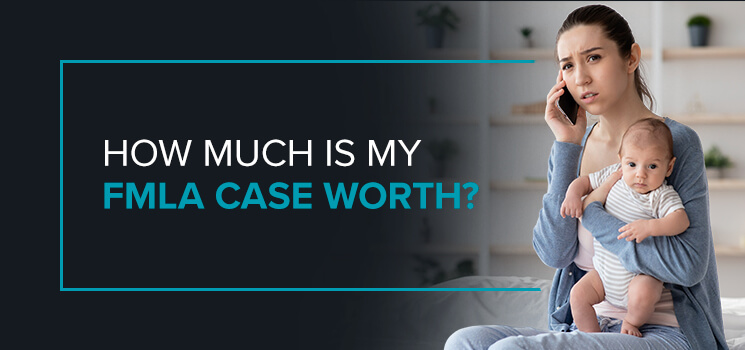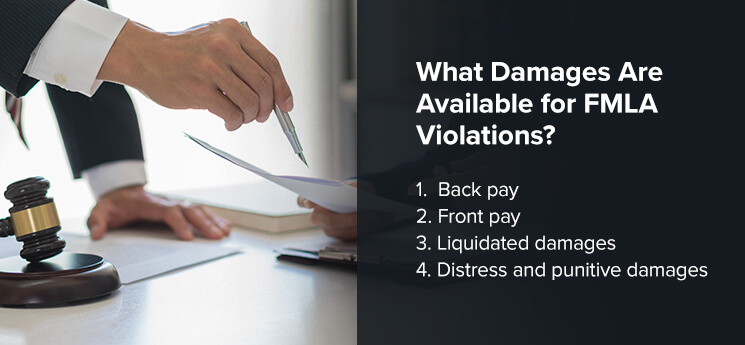The Family and Medical Leave Act of 1993 (FMLA) is a federal law that provides unpaid leave for workers for medical and family reasons. The law applies in all 50 States and to prescribed businesses and industries within the United States.
The FMLA applies to companies with 50 or more employees. It states that they must grant 12 weeks of unpaid leave to employees who have worked there for at least a year, provided they have worked at least 1,250 hours in the 12 months leading up to their leave request. Employees may use this leave for various purposes, including:
- The birth and care for their newborn child.
- Adopting or fostering a child.
- Caring for an immediate family member’s serious health condition.
- Caring for their own serious health condition.
- Addressing urgent needs related to a family member’s military service.
Employees eligible for unpaid leave may claim it without sanctions from their employers. The law guarantees FMLA leave and is not at the employer’s discretion. However, many employers refuse to grant FMLA leave or sanction employees when they take it. Breaches of the FMLA include:
- Denying valid FMLA leave requests.
- Threatening or discouraging employees from taking FMLA leave.
- Suspending benefits such as health care, which should continue throughout the unpaid leave.
- Demotion or dismissal.
This article will answer common questions about FMLA cases and take you through the legal avenues available to you.
How Much Is an FMLA Violation Lawsuit Worth?
Settlements are contracts for you or your lawyer to negotiate and depend on the circumstances of each case. Settlement amounts for FMLA violations depend on the type of claim, your salary, how long you were employed and the losses you incurred.
For example, if you lost a $30,000 salary due to wrongful termination, you will likely want to negotiate for the entire $30,000. On the other hand, you will probably aim for a lower amount if you were demoted instead. Your settlement could also include multiple remedies. Besides claiming compensation, you may also seek the reinstatement of all benefits or other damages.
FMLA settlement amounts vary widely, so calculating the average FMLA lawsuit settlement is challenging and may not reflect what you could expect in your case. Settlements could be several thousand dollars or more than a million.
To work out how much you can ask for in a settlement or expect from a jury award if your FMLA retaliation case is won, consult with a legal professional who can guide you through all the relevant legal factors in your case and assess the prospects.
What Damages Are Available for FMLA Violations?
An FMLA violation lawsuit awards damages, the sum of money you claim against the other party — in this case, your employer — in a civil action. The potential value of your FMLA case depends on the type of damages available. FMLA retaliation damages available in civil actions include back pay or reinstatement, front pay and liquidated damages.
The court awards compensation on a case-by-case basis. The judge or jury may also award back pay or front pay in FMLA cases:
- Back pay: Awarded back pay includes all wages, salaries, commissions, benefits and bonuses you lose due to your employer’s breach of the FMLA rules. The court calculates back pay by adding all losses from the date of the unlawful actions through the date of judgment minus payments made in the interim. Back pay usually stops accumulating once you secure another job with an equal or higher salary and benefits. Interest may also be added to back pay.
- Front pay: Front pay is forward-looking. It includes salaries, wages and benefits you were likely to gain in the future before your employer’s breach. For example, the court may award front pay to cover those losses if you are unlikely to find a new job within that year.
- Liquidated damages: Liquidated damages are typically equal to the back pay award. They are sometimes called double damages because the employer pays the same amount twice. Liquidated damages are automatically awarded when FMLA retaliation cases are won unless the employer can show they made an honest mistake when denying leave.
- Distress and punitive damages: While the FMLA does not have punitive damages and emotional distress provisions, you may be able to recover these damages if you have claims under other statutes, such as the Americans with Disabilities Act or Pregnancy Discrimination Act.
Apart from the general damages, the court may award attorneys’ fees and costs if you win an FMLA retaliation case. The opportunity to recover your legal costs is an added incentive to choose professional legal representation if your case goes to court.
The court may also order your employers to comply with the law, which may mean reinstating you into your old position.
What Evidence Does an FMLA Lawsuit Need?
If you file an FMLA lawsuit, you are alleging that your employer violated your FMLA rights by denying, interfering with or retaliating against your valid leave request. To win your case, you will likely need evidence to show:
- Eligibility: This evidence shows you worked for a qualifying employer for the required amount of time.
- Reason: This is evidence that your purpose for claiming the leave falls within the FMLA’s specifications.
- Process: Process evidence proves you submitted your leave request in line with company policy.
- Violation: This evidence shows your employer violated your FMLA rights by denying your leave or retaliating.
If you believe your employer violated your FMLA rights but you lack any of this evidence, consult a professional lawyer for advice before proceeding with a lawsuit. You may still have a case, but you should approach it wisely with the help of a reputable attorney.
What Can You Do If Your FMLA Rights Are Violated?
Before determining how much your FMLA case may be worth, you should know the legal avenues available to secure compensation.
The first option is to file a complaint with the Wage and Hour Division (WHD) of the Department of Labor (DOL). A valid complaint will lead to an investigation. Based on the investigation’s findings, the WHD will discuss any violations with you and your employer or your representatives and request that your employer pay damages such as back wages.
Alternatively, you can initiate a private lawsuit against your employer to get damages for your losses. Your employer may fight against the charges or offer to settle the matter out of court.
In any of these instances, you should employ an employment law attorney to help you through the process.
Get a Free Consultation From Weisberg Cummings, P.C.
When your employer violates the FMLA laws, you may file a complaint with the DOL, negotiate a settlement with your employer or sue your employer for compensation. The worth of an FMLA case depends on each case’s circumstances, including the type of violation, your salary and how long your employer refused to pay your wages or benefits. Contact an employment attorney if you feel your employer has violated your FMLA rights.
Weisberg Cummings has skilled employment law attorneys passionate about protecting workers’ rights. We aim to assist workers in Pennsylvania to get what they deserve. Contact us for a free consultation today!



